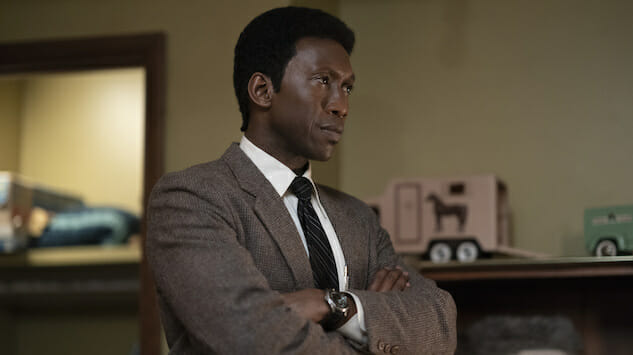True Detective: Time Is Once Again a Flat Circle in the Season Three Premiere
(Episode 3.01)
Photo: Warrick Page/HBO
Time is a flat circle.
So is a bicycle tire, so let’s get clear from the first shot that True Detective is reconnecting with its Season One glory days. The first line, delivered by Detective Wayne Hays (Mahershala Ali), is “Of course I remember.” We’re about to set out on a major excursion into the nature of time and memory.
There is a case, the kind that rips a small town apart, Ozark-Gothic style, and leaves no one untouched. The kind in which anyone could be the murderer, and yet no one can conceive of something so ghastly. The kind that just won’t go away, that goes unsolved for ages, that finally results in a conviction—only for new evidence to come to light a decade later, invalidating the whole conclusion. The kind people write books and make documentaries about. It’s 1990, and “they” are trying to overturn a conviction. It’s 2015, and somehow this case is still at issue. It’s 1980, and it hasn’t happened yet. It’s 2015, and there’s a pistol in the nightstand drawer and Hays’ memories are not entirely stable. It’s 1990, and his wife is writing about the case that has defined his career and will ultimately define hers. He might or might not have a problem with that.
It’s 1980—November 7, the day Steve McQueen died.
-

-

-

-

-

-

-

-

-

-

-

-

-

-

-

-

-

-

-

-

-

-

-

-

-

-

-

-

-

-

-

-

-

-

-

-

-

-

-

-








































